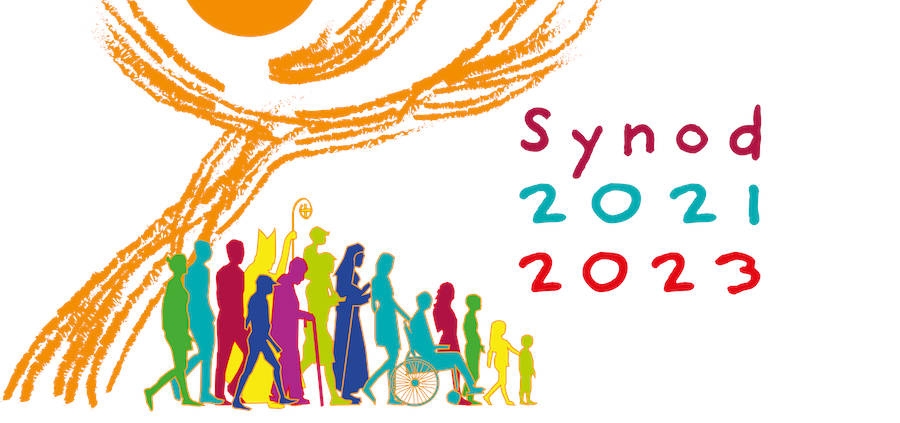Synod Moves to Continental Stage
On September 19, the US Conference of Catholic Bishops (USCCB) released the National Synthesis for the 2021–2023 Synod. The National Synthesis was prepared by collating the responses of 14 Regional Synthesis reports from synodal listening sessions across the country, plus an additional “Region XVI” Synthesis created by the US Synod team to gather the contributions of Catholic organizations and groups.
In his introduction to the National Synthesis, Bishop Daniel E. Flores writes, “As Pope Francis frequently reminds us, synodality is not a one-time event, but an invitation to an ongoing style of Church life.” This may be the most lasting contribution of the Synod: the impetus to shift from a top-down style of leadership to the via collectiva, or “collective way,” where “we think and live in terms of the other.”
The USCCB is to be commended for including issues and themes in the National Synthesis that bishops too rarely speak out about, including the role of women in the church, racism, wounds inflicted by the sexual abuse crisis, divisiveness, ministry to and with the LGBTQ community, and climate change. “At this moment in the synodal journey, one may agree or disagree with some of the perceptions heard and expressed, but we cannot assume they have no importance in lived reality,” the document states.
Acknowledging that the listening sessions revealed a “deep hunger for healing and the strong desire for communion,” the document goes on to cite a telling comment from the Region XII Synthesis: “[Participants] want the Church to meet people where they are, wherever they are, and walk with them rather that judging them; to build real relationships through care and authenticity, not superiority.”
Threaded throughout the National Synthesis the notion of synodality as a “relationship of collaboration” facilitated by the Holy Spirit as “the principal agent of discernment [that] leads us together to gaze upon the face of Christ in one another.” The authors of “Towards a Spirituality for Synodality,” a reflection issued earlier this year by the Synod’s Commission on Spirituality, make a similar claim when they write that “synodality is not only a theology but a spiritual practice” that involves “the daily reality of the Holy Spirit in the whole life and mission of the Church.”
The National Synthesis was one of 112 syntheses from bishops’ conferences around the world that represent the fruit of the Diocesan or “Local” phase of the Synod. Additional syntheses were submitted to the Vatican’s General Secretariat of the Synod by Eastern Catholic Churches, religious congregations, ecclesial associations and movements, Vatican dicasteries, and other groups and individuals.
From the Diocesan or “Local” phase, the synod moved swiftly into the “Continental” phase at the end of August. At a press conference on August 26 to announce the opening of the Continental phase, Cardinal Mario Grech, General Secretary of the Synod, spoke of the “circularity” of the synodal process that involves all levels of ecclesial life.
From September 21 through October 2, 50 participants—men and women, religious and lay—from all over the world met in Frascati outside of Rome to listen, dialogue, and discern from the international collection of synodal syntheses. Based on their 12 days of consultations, the group wrote the document for the Continental phase and presented it to Pope Francis. This document will be made public later this month, and it will be returned to the People of God in each of the particular churches across seven geographical regions: Europe, Latin America and the Caribbean, Africa and Madagascar, Asia, Oceania, North America (US and Canada) and the Middle East.
The Continental phase will not replicate the consultation, listening, and discernment process of the Diocesan phase. However, as Cardinal Grech made clear in August, “every Bishop is required to bring the [Continental] Document to the attention of the Church and to make a careful reading of it . . . and to draw up with the synodal team any observations to be forwarded to the Bishops’ Conference or to the Secretariat of the Continental Assembly.”
In other words, the Continental document will not be referred to a closed assembly of bishops, but to the entire People of God. The Synod website clarifies: “All Continental Assemblies should be Ecclesial Assemblies (of the entire People of God) and not only Episcopal Assemblies (of bishops only). Thus, the participants should adequately represent the variety of the People of God: bishops, priests, deacons, men and women religious, laymen and laywomen.”
The Continental phase encourages local groups to deepen the synodal process by reflecting on the Continental document, formulating new questions, and praying on how the insights offered might suggest new paths forward for the church. However, it is important to note that the main subjects of this pre-assembly period are those members of Synod teams who have been appointed to represent local Churches at the Continental Assembly early next year.
Additionally, according to the Synod website, “This [Continental] stage also wants to be an opportunity to listen to those realities on the margins of the Church not integrated in the previous stage.”
The conclusion of the Diocesan phase should not be seen as an end, but a new beginning, where “[o]ur journeying together can . . . become the foundation for how we participate in Church as the whole of the People of God.” ♦





Now that tomorrow(October 27, 2022) will be the official release in Rome of the working document for the Continental Phase, we will be able to see what the cumulative grassroots Diocesan Phase has revealed. I think it will be a bell weather for what the Church is taking seriously in this process. I am hopeful that every Bishop will comment on the findings and encourage continued diocesan discussion. That encouragement and involvement or lack of will speak volumes.